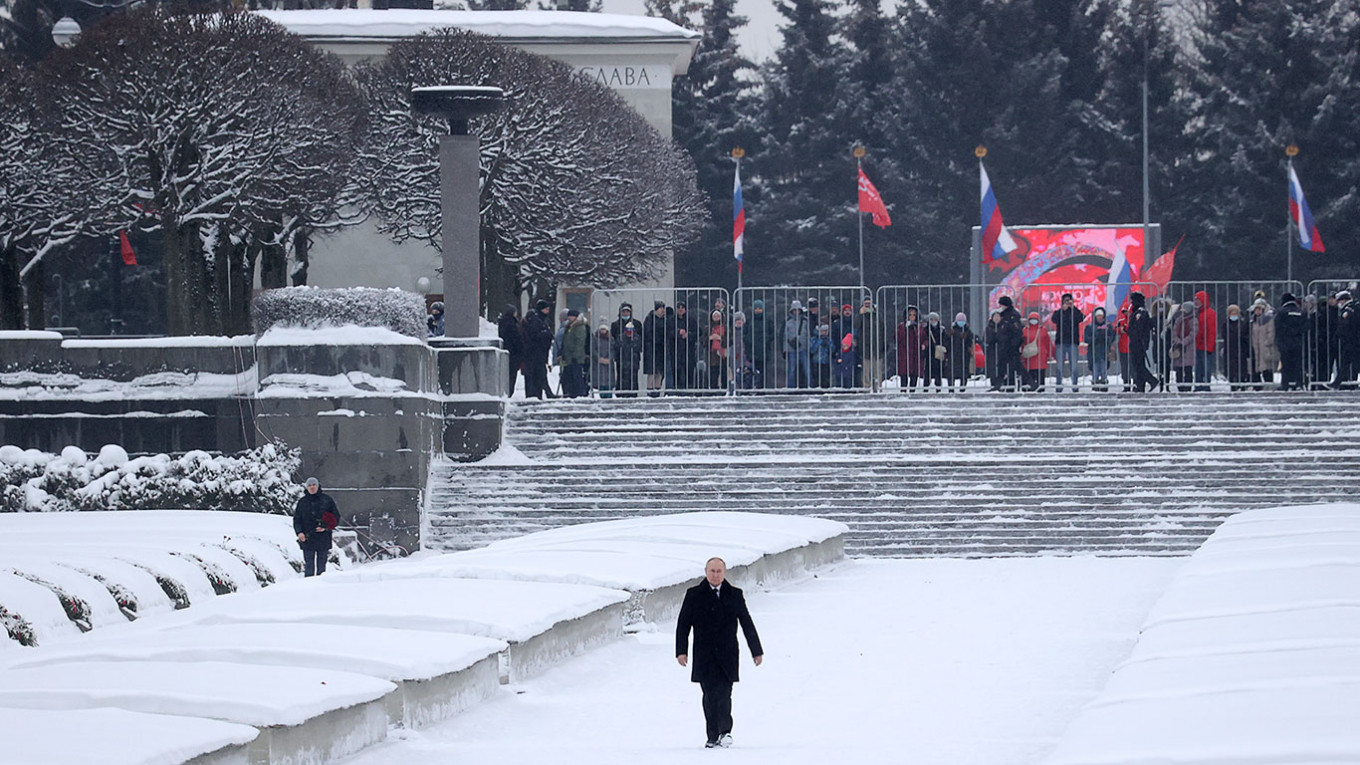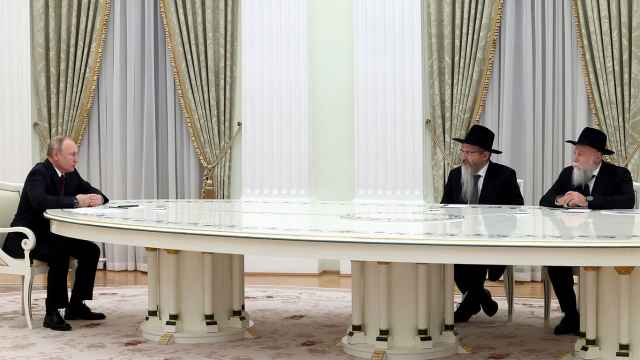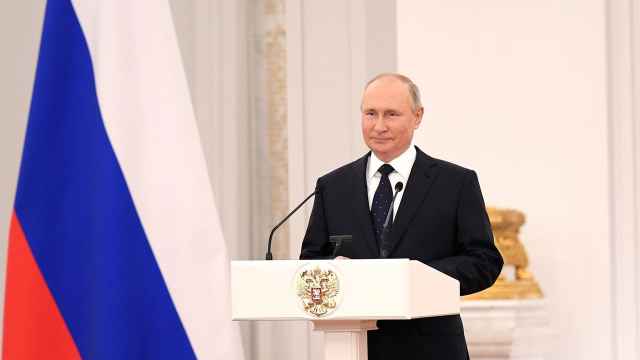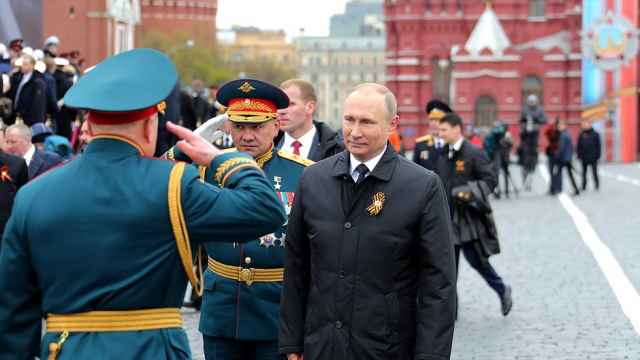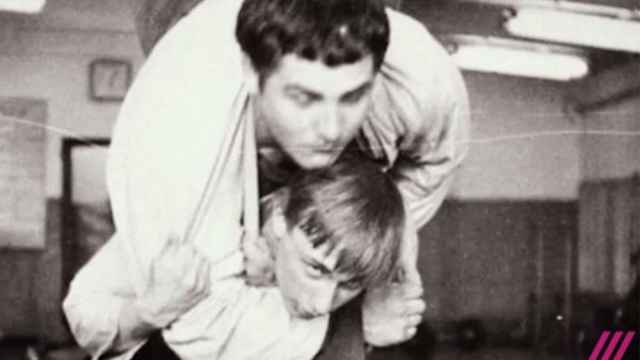President Vladimir Putin faced criticism Thursday for causing long lines at a mass grave for victims of the Siege of Leningrad to commemorate the 78th anniversary of its lifting, sparking a rebuffal from the Kremlin.
A photo shared by the Podyom news website showed Putin walking on the grounds of the Piskaryovskoye Memorial Cemetery in northern St. Petersburg while other mourners looked on from behind a fence.
“It’s closed on all sides,” a woman who introduced herself as 89-year-old blockade survivor Anastasia Petrovna told Vedomosti business daily reporter Svyatoslav Afonkin’s colleague.
“I came on foot to lay three flowers, but as you can see I can’t pass,” she said in an audio recording of the conversation posted to Afonkin’s Telegram channel.
St. Petersburg’s Bumaga news outlet reported that the Piskaryovskoye Cemetery informed it by phone that the site would be closed until 3:00 p.m. Moscow time.
“The tsar has arrived and the entrance is closed for half a day due to ‘covid.’ Thank you, Vladimir Vladimirovich [Putin], that’s very patriotic,” St. Petersburg guide Dmitry Beryozin wrote in an Instagram Story.
The Kremlin denied that entry was blocked into the mass grave where up to 500,000 victims of the siege lay buried.
“There were no closures whatsoever,” Putin’s spokesman Dmitry Peskov was quoted by Podyom as saying to reporters.
“They were only asked to wait a little bit while Putin laid flowers, but even that took no more than 10 minutes,” he added.
“Everyone continued calmly afterward, so [the criticism] doesn’t comport with reality.”
Up to 1 million residents of Soviet Leningrad died from hunger, disease and Nazi shelling during the 872 days of the siege between 1941 and 1944 in World War II.
A Message from The Moscow Times:
Dear readers,
We are facing unprecedented challenges. Russia's Prosecutor General's Office has designated The Moscow Times as an "undesirable" organization, criminalizing our work and putting our staff at risk of prosecution. This follows our earlier unjust labeling as a "foreign agent."
These actions are direct attempts to silence independent journalism in Russia. The authorities claim our work "discredits the decisions of the Russian leadership." We see things differently: we strive to provide accurate, unbiased reporting on Russia.
We, the journalists of The Moscow Times, refuse to be silenced. But to continue our work, we need your help.
Your support, no matter how small, makes a world of difference. If you can, please support us monthly starting from just $2. It's quick to set up, and every contribution makes a significant impact.
By supporting The Moscow Times, you're defending open, independent journalism in the face of repression. Thank you for standing with us.
Remind me later.


